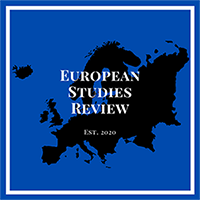By Jelle Baartmans
In the past few weeks, most of Europe’s attention has focused on Alyaksandr Lukashenka and his increasingly repressive measures against the Belarusian people —including but not limited to making an intra-EU Ryanair flight land in Minskunder false pretences to arrest one of the plane’s passengers. At the same time, it is worth paying close attention to this year’s political developments in Belarus’s eastern neighbor, Russia. Because while Belarus reaches Europe’s headlines like never before, a number of worrying signals from Russia indicate an unprecedented, steady crackdown on civil liberties, not unlike the repressions in Belarus.
It is not just the conviction of Alexei Navalny—the anti-corruption activist who was sentenced to two years and eight months in prison in early February—that has sent a clear signal to liberal-minded Russians who still had any illusions that they can freely oppose President Vladimir Putin. Other forms of repression that have received less attention abroadinclude the arrest of Olga Misik, a crackdown on several independent media, a new law bringing educational activities in its broadest sense under state control, and the use of facial recognition software to identify participants in public protests.
This year’s most high-profile persecution after Alexei Navalny’s is undoubtedly that of Olga Misik, a 19-year old activist who was sentenced to two years and two months of home confinement for splashing paint and hanging a banner in support of political prisoners on public buildings. Misik became famous in 2019 when she read out the Russian Constitution to riot police during public protests. Her conviction came three months after Navalny’s and seven months after historian Yuri Dmitriyev, who produced revealing research on Stalin’s Great Terror, was sentenced to 13 years in prison on questionable grounds of sexual abuse of his daughter.
Independent media, which were allowed to exist in the margins of Russia’s media landscape, have also experienced increasing pressure in recent months. In April, Meduza, one of the biggest independent media outlets, was declared a foreign agent under Russia’s “foreign agent” law. Among other things, this means that the outlet has to include a message stating they are a foreign agent in all their communications, whether it is an article on their website or even a tweet. In effect, Meduza is obliged to put itself in a bad light, which they fear will cost them most of their income from advertisements. This month, VTimes, an offspring of the famous business newspaper Vedomosti—the editors of VTimes left Vedomosti last year when the state took control of the latter—was also designated a foreign agent. Similar recent incidents: Radio Free Europe/Radio Liberty was fined over half a million dollars under the foreign agent law in March, the office of the investigative media platform iStories (as well as the house of editor-in-chief Roman Anin) was raided by security forces in early April, and several days later security forces raided the homes of several editors of Doxa, a student journal at Moscow’s Higher School of Economics that had actively mobilized people for the protests against the detention of Alexei Navalny. Navalny’s own Anti-Corruption Foundation, meanwhile, was declared an illegal “extremist” organisation by a Moscow court on June 5.
On April 5, President Putin signed amendments to the law “On Education” that basically brings all dissemination of knowledge under (potential) state control. This is because the new legislation turns the state into the regulator of “educational activities”, but the definition of that concept is so broad and vague that anything can theoretically fall under it. Potentially, then, the amendments give the state the power to crack down on any public lecture, YouTube video, or website it does not like. Meduza translated the definition of “educational activity” as follows:
Activities carried out outside formal academic programs with the intention of disseminating knowledge, experience, the formation of skills, value systems, or competence for the purpose of a person’s intellectual, spiritual and moral, creative, physical, and (or) professional development, in order to satisfy a person’s educational needs and interests.
Finally, in an unprecedented move to track down participants in the protests against the detention of Navalny, the authorities in Moscow extensively used facial recognition cameras to identify protesters and find and interrogate them. Moscow’s public surveillance system, which was introduced in the past few years—officially with the argument that it makes the city safer and to enforce last year’s COVID-19-related lockdown—consists of over 100,000 cameras. A clear legal framework for the usage of the surveillance system does not exist, which means that citizens can now be followed in a way reminiscent of China’s extensive public surveillance methods.
Russia is no Belarus, and Putin is no Lukashenka—as of yet. The repression currently demonstrated by the Belarusian regime is unmatched on the European continent. However, the signs from Russia are seriously worrying. In 2000, the first year of his presidency, Putin promised in an interview: “Russia should not be and will not be a police state.” What followed in the two decades since was a steady increase in political repression (a path which Anna Politkovskaya and Boris Nemtsov, among others, did not survive, nor did the territorial integrity of Ukraine). So far this year, the increase is alarmingly steep, and with parliamentary elections coming up in September, more measures in the months to come cannot be ruled out. Opposition politician Dmitry Gudkov decided not to take any chances and fled the country on June 6.

